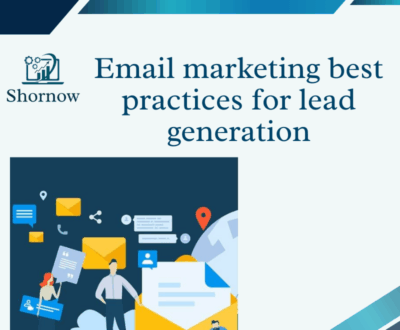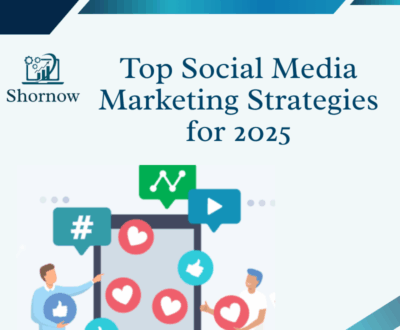SEO is still a key part of digital marketing for long-term online success. Whether you’re a new business trying to grow or a well-known brand wanting to stay visible online, learning SEO is a must. But with search engines always changing and people’s online habits shifting, keeping up with SEO needs not just knowledge, but also flexibility and advice from experts. Here are the SEO tips from professional digital marketing experts.
To find out what really works in today’s tough SEO world, we talked to some experienced digital marketing experts. Their tips, based on real experience and proven methods, are much more useful than just adding keywords or buying backlinks. These ideas can help businesses improve their content, website setup, and online presence to get higher rankings and more engagement.
-
Focus on User Intent, Not Just Keywords
One common tip from experts is to create content that matches what people are really searching for. It’s not just about using popular keywords—you need to understand what the user actually wants when they search.
Google is getting smarter every day. It now understands what users mean, not just the exact words they type, says Aisha Patel, an SEO expert at a top marketing company. Make sure your content clearly and fully answers what the user is really looking for.
Start by looking at the search results for your target keyword. Are they showing product pages, blog posts, videos, or FAQs? This will help you understand what Google thinks is most relevant for that search.
-
Content Quality Over Quantity
The days of posting 10 blog articles a week to get traffic are over. Now, SEO focuses more on quality than quantity. Experts agree that making detailed, well-researched, and helpful content that solves real problems is much better than posting shallow articles with SEO tips from professional digital marketing experts
“Make sure every piece of content is the best on that topic,” says Michael Chen, founder of a successful SEO agency. Long content works, but only if it’s valuable. Add examples, images, and data, and make it easy for users to read.
-
Optimize for Mobile-First Indexing
Since Google now uses mobile-first indexing, your mobile site is the main one that gets ranked. If your site isn’t mobile-friendly, you’re likely losing traffic and rankings.
SEO expert Priya Khurana says, “Responsive design is a must. Your mobile site should load quickly, be easy to use, and show all important content. Avoid pop-ups and clutter—a simple design works best.”
-
Improve Page Load Speed
Speed is important. A one-second delay in page loading can lower conversions by 7% and hurt your search ranking. Google’s Core Web Vitals now measure real user factors like page speed, how interactive the page is, and visual stability. Experts suggest using tools like Google PageSpeed Insights, GTmetrix, or Lighthouse to find and fix performance problems.
-
Leverage Topic Clusters and Internal Linking
Search engines are moving from focusing on keywords to organizing content by topics. Creating a site with main “pillar” pages and related blog posts helps improve SEO.
“Internal linking is very effective but often ignored,” says James Roland, content marketing head at a tech company. “Link to related articles, product pages, and key content. This keeps users interested and spreads authority across your site.”
-
Consistently Update Old Content with SEO tips from professional digital marketing experts
An article that performs well can lose traffic if it gets outdated. Updating your content regularly keeps it relevant, accurate, and competitive.
Digital marketing consultant Anya Mehta says, “Check your top pages every 6-12 months. Add new data, update images, fix broken links, and improve keywords.”
This practice not only improves rankings but also shows Google that your site is actively maintained with SEO tips from professional digital marketing experts.

-
Master On-Page SEO Basics
While advanced techniques evolve, the fundamentals still matter:
- Use clear title tags with your target keyword.
- Write catchy meta descriptions (to improve click-through rates, not rankings).
- Include headers (H1, H2, H3) to organize content.
- Add alt text to images.
- Keep URLs short and descriptive.
These small optimizations collectively enhance your visibility and user experience
8. Optimize for Featured Snippets and Zero-Click Searches
Featured snippets (position zero) dominate SERPs and increase brand visibility, even if users don’t click. To win these spots:
- Use clear headings.
- Answer questions in 40-60 words.
- Use lists, tables, and definitions.
- Add schema (structured data) to your content.
“This is an easy win for SEO,” says Logan Evans, a technical SEO specialist.”Snippets increase brand recognition even if people don’t click on them.”
-
Build High-Quality Backlinks, Naturally
Backlinks are still important for rankings, but quality matters more than quantity. Focus on getting links from relevant, trusted sites in your niche.
- Guest post on reputable platforms.
- Create content worth linking to (like original research, infographics, and tools).
- Build relationships with journalists and bloggers (using HARO).
- Share content regularly on social media.
- Avoid dishonest link tactics—they can lead to penalties.
-
Embrace Local SEO Strategies with SEO tips from professional digital marketing experts
For businesses focusing on local markets, local SEO is essential. Claim your Google Business Profile (formerly GMB), ask for reviews, and optimize your local listings.
Ensure your NAP (Name, Address, Phone number) is consistent across all platforms. Use local keywords and create content that connects to your area.
“People are searching for ‘near me’ more than ever,” says Tanya Desai, a local SEO expert. “You want your business to be the first one they find.”
-
Create Videos and Optimize Them for Search
Video content is becoming more popular and effective. YouTube is the second-biggest search engine, and videos often appear in Google search results.
Tips from video SEO experts:
- Optimize titles, tags, and descriptions.
- Use keywords naturally in your narration.
- Add subtitles and a transcript.
- Add videos to your site to keep visitors on the page longer.
-
Monitor Analytics and Adjust SEO Strategies
Without tracking performance, you’re guessing. Use Google Analytics, Google Search Console, and tools like SEMrush, Ahrefs, or Moz to track traffic, rankings, bounce rates, and more.
“SEO isn’t something you can set and forget,” says Neil Franco, an experienced marketer. Audit regularly. Test headlines. Experiment with new formats. See what works, then scale.
-
Use Schema Markup and Structured Data
Schema helps search engines understand your content and can enhance your search results with rich snippets, like star ratings, prices, or FAQs.
Common schema types include:
- Article
- Product
- Review
- Local Business
- FAQPage
Tools like Google’s Structured Data Markup Helper can help you set it up.
-
Optimize for Voice Search
With the growth of smart speakers and mobile assistants, voice search optimization is more important.
“Voice searches are usually question-based and conversational,” says Erin Wallace, a digital strategist”. Use simple language, answer questions clearly, and focus on longer, specific searches.”
Including an FAQ section can help capture this traffic.
-
Stay Updated with Algorithm Changes
Search engines update their algorithms often. Big updates, like Google’s Helpful Content Update or Core Web Vitals changes, can affect rankings significantly.
Follow trusted SEO blogs like:
- Moz Blog
- Search Engine Journal
- Backlinko
- Neil Patel
- Google Search Central Blog
Staying updated helps you adjust quickly when changes happen.
Final Thoughts: SEO Is a Marathon, Not a Sprint
Effective SEO takes time, consistency, and patience. It’s not just about getting to the first page—it’s about providing real value to users. That’s why search engines favor brands that focus on quality, relevance, and authority.
The tips from our SEO experts show how important it is to combine smart planning with technical skills. Whether you’re a business owner, content creator, or marketer, using these ideas can greatly improve your online presence and performance.
Focus on Featured Snippets
Featured snippets, or position zero results, often appear at the top of search results and can increase visibility. These snippets display brief answers to questions directly on the search page and are highly sought after.
“Optimizing for featured snippets is a huge opportunity for SEO,” says Tanya Desai, an SEO consultant. “You should aim to give clear, short answers to common questions and organize your content in that way.” To target featured snippets, use headings (H1, H2, H3), bullet points, and brief answers.
Master Local SEO for Regional Visibility
For businesses aiming at local customers, local SEO is essential.. Optimize your Google Business Profile (formerly Google My Business), get local backlinks, and make sure your NAP (name, address, phone number) is consistent across directories to improve local search rankings.
“Local SEO is important for physical stores,” says Michael Chen. “By focusing on location-based keywords and getting positive reviews, you can improve your chances of ranking higher in local searches.” Local SEO also includes optimizing for “near me” searches, which are becoming more popular as people look for businesses nearby.
Optimize for Voice Search
With the growth of smart speakers and voice assistants, voice search optimization is more important than ever. People ask questions in a conversational way, so it’s important to optimize for longer, natural-sounding queries.
“Voice search queries are usually more question-based and conversational,” says Erin Wallace. “Optimize your content by adding question-and-answer sections, FAQs, and using natural language to attract this traffic.”
Monitor Analytics and Adjust SEO Strategy
SEO isn’t something you set up once and forget. It needs constant monitoring and updates. Tools like Google Analytics and Google Search Console give you useful data on how your site is doing, which keywords bring traffic, and areas to improve.
SEO is a continuous process,” says Priya Khurana. “Review your site’s performance regularly, track keyword rankings, and adjust your strategy based on data insights.
SEO is a complex and constantly changing field, with strategies that keep evolving. Top digital marketing experts focus on a user-first approach, where content quality, speed, mobile optimization, and understanding user intent are key.
By following these expert tips—focusing on user intent, creating quality content, optimizing for mobile, and building strong backlinks—you can greatly improve your website’s SEO performance.
SEO is a long-term game, and by staying informed and adapting to changes in the digital landscape, you’ll set your business up for lasting success in search engine rankings.
Quick Recap of Expert SEO Tips:
- Prioritize user intent.
- Focus on content quality.
- Ensure mobile-first optimization.
- Speed up your website.
- Use topic clusters and internal linking.
- Update old content.
- Nail on-page SEO basics.
- Target featured snippets.
- Build strong backlinks.
- Master local SEO.
- Incorporate video content.
- Analyze and adjust using data.
- Use structured data/schema.
- Prepare for voice search.
- Stay current with updates.
By following these strategies and continuously refining your approach, you’ll build an SEO foundation that not only survives algorithm changes but thrives because of them.








